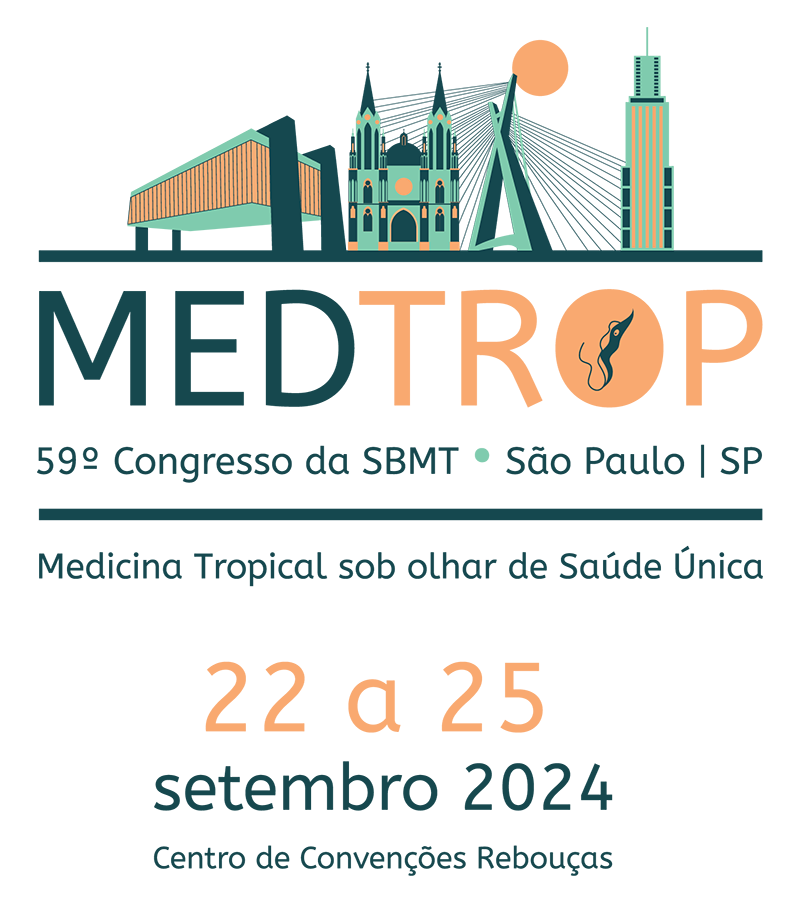Dados do Trabalho
Título
Clinical Profile of Individuals with Chronic Chagas Disease in Tremedal: Insights from the Oxente Chagas Bahia Project
Introdução
Chagas disease (CD), caused by Trypanosoma cruzi, is clinically divided into two phases. The acute phase is frequently asymptomatic and lasts 2–3 months, while the chronic phase persists for life, leading to severe cardiac and gastrointestinal disorders in approximately 30% of infected individuals.
Objetivo (s)
This study aimed to assess the clinical profile of T. cruzi-positive individuals residing in Tremedal, Bahia, from 2019 to 2024, the site of the Oxente Chagas Bahia Project.
Material e Métodos
Positive cases were identified using the Laboratory Environment Manager (GAL) system of Tremedal. Clinical data, including comorbidities, antiparasitic treatment, and associated adverse reactions, were analyzed via the Citizen's Electronic Medical Record (PEC) within the e-SUS system. Data from complementary exams, such as electrocardiograms and echocardiograms, were used for risk stratification.
Resultados e Conclusão
During the study period, sixteen T. cruzi-positive individuals were identified through the GAL system. Fourteen of these individuals were registered in the municipal PEC. However, data for three individuals were unavailable due to loss to follow-up (migration to another city), and one individual had deceased. The median age of the remaining ten individuals was 49 years (IQR 47-58.5), with four men and six women. Seven individuals (70%) had systemic arterial hypertension. Electrocardiogram abnormalities (QRS axis deviation, prolonged QT interval, right bundle branch block and nonspecific ventricular repolarization) were observed in five individuals (50%), while echocardiogram abnormalities (tricuspid valve insufficiency and mild aortic insufficiency) were noted in two (20%) individuals. Regarding digestive involvement, two individuals (20%) presented with symptoms, including epigastralgia, achalasia cardia and megacolon, with one patient having undergone Duhamel's procedure for megacolon. Among the ten individuals, only one (10%) received treatment with benznidazole, with no reported adverse reactions. Despite the efforts of healthcare professionals in Tremedal, there remains a significant gap in the management of CD-positive individuals, evidenced by the low treatment rate. The Oxente Chagas Bahia Project will play a critical role in addressing this gap by enhancing the detection chronic CD cases and improving the quality of life for affected individuals through timely diagnosis, treatment, and care.
Palavras Chave
Chagas disease; Clinical Profile; Tremedal; Oxente Chagas Bahia
Área
Eixo 06 | 1.Protozooses humanas e veterinárias - Doença de Chagas
Autores
Anderson Luiz Pimentel Ferreira, Tycha Bianca Sabaini Pavan, Ângelo Antônio Oliveira Silva, João Victor França Moreira, Isabela Machado Serrano, Randrin Queiroz Viana Ferreira, Larissa Carvalho Medrado Vasconcelos, Rosângela Andrade Almeida, Daniel Dias Sampaio, Isadora Cristina Siqueira, Fred Luciano Neves Santos

 Português
Português English
English